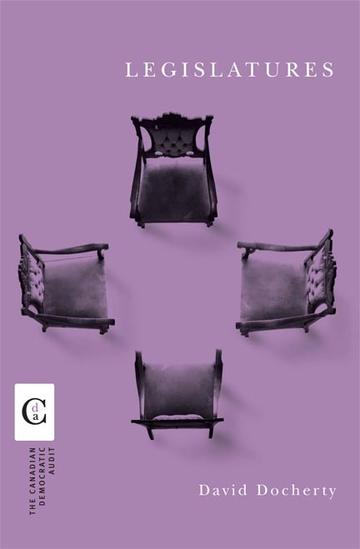About BC Books Online
BC Books Online was created for anyone interested in BC-published books, and with librarians especially in mind. We'd like to make it easy for library staff to learn about books from BC publishers - both new releases and backlist titles - so you can inform your patrons and keep your collections up to date.
Our site features print books and ebooks - both new releases and backlist titles - all of which are available to order through regular trade channels. Browse our subject categories to find books of interest or create and export lists by category to cross-reference with your library's current collection.
A quick tip: When reviewing the "Browse by Category" listings, please note that these are based on standardized BISAC Subject Codes supplied by the books' publishers. You will find additional selections, grouped by theme or region, in our "BC Reading Lists."
Legislatures provides a democratic audit of Canada’s provincial and national representative assemblies. It argues that the problem existing in these bodies is not a lack of talent so much as a lack of institutional freedom. Specifically, the problem is largely one of resources and rules. The move to a more multi-party system nationally and the increasing tendency to downsize provincial assemblies has placed additional hurdles in the path to good governance. Docherty uses the series’ criteria of responsiveness, inclusiveness, and participation to evaluate critically the performance of legislatures in Canada, and makes recommendations for legislative reform in Canada.
David C. Docherty is the president of Mount Royal University.
There is a lot of useful and worthy information written in its pages, and most of the recommendations, particularly those involving party discipline and updating institutional rules in legislatures, will go a long way in improving the democratic aspects of Canada’s governing institutions. Ultimately, what must be said about David Docherty’s audit in Legislatures is that we finally have a modern, comprehensive update on Canadian legislatures that has been missing since C.E.S. Franks’ 1987 contribution in this area. For nearly 20 years, students of Canadian legislatures have only had that source to utilise, and Docherty’s update will certainly be a must read for anybody remotely interested in Canada’s legislative institutions from this point forward.



